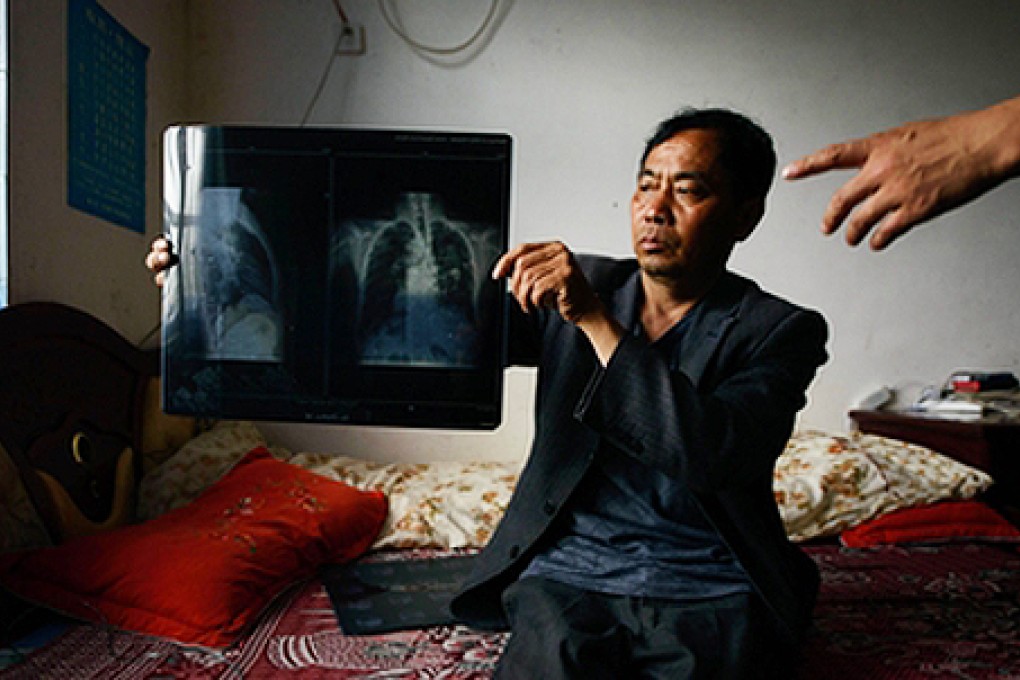In China, losing battle against lung disease and workers' rights
A migrant worker shocked China in 2009, when he volunteered for an operation to open up his chest to prove he was suffering from a fatal lung disease. The case has highlighted the challenges workers face as they seek compensation for occupational illness on the mainland.

Migrant worker Zhang Haichao wakes up three or four times a night.
“I have to lie flat on the bed and can’t turn over. I must get up and sit for a while after sleeping for a long time, otherwise I can’t breathe,” he said. Every day it gets harder for him to breathe as his pneumoconiosis recurs. A lung transplant is his only chance of surviving.
Zhang shocked China in 2009, when he volunteered for an operation to open up his chest to prove he was suffering from the fatal lung disease, which he contended was developed on the job. The case has highlighted the challenges workers face as they seek compensation for occupational illness on the mainland.

The incurable disease is caused by long-term exposure to industrial dust, such as from coal mining. It is the most serious and most common occupational disease in China today, according to official figures. Most sufferers are rural migrant workers.
Zhang is one of about six million pneumoconiosis victims on the mainland, an estimate from the Love Save Pneumoconiosis Foundation that is nine times more than official figures released by the health ministry.